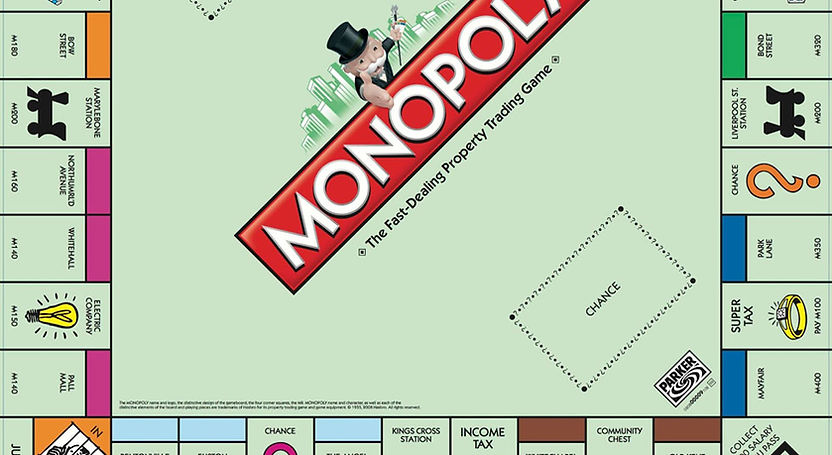
HASBRO
classic monopoly board game
Monopoly, which is the best-selling privately patented board game in history, gained popularity in the United States during the Great Depression when Charles B. Darrow, an unemployed heating engineer, sold the concept to Parker Brothers in 1935.

Image courtesy of Hasbro
Before then, homemade versions of a similar game had circulated in many parts of the United States. Most were based on the Landlord’s Game, a board game designed and patented by Lizzie G. Magie in 1904.
She revised and renewed the patent on her game in 1924. Notably, the version Magie originated did not involve the concept of a monopoly; for her, the point of the game was to illustrate the potential exploitation of tenants by greedy landlords. Magie used the Landlord’s Game to promote a remedy for such exploitation—namely, the single tax on property owners, a leading social issue among those who criticized land speculation as a cause of economic injustice.
The Landlord’s Game was still circulating in the early 1900s as a handmade board game, and other variations emerged that incorporated the monopolization of properties. Among those promoting this version were the brothers Louis and Fred Thun, who abandoned their patent attempt in 1931 when records of Magie’s 1904 patent came to light, and Dan Layman, who named his game Finance but, like the Thuns, did not patent it. Darrow drew upon the earlier models, successfully marketing his version of Monopoly to retailers in the northeastern United States between 1933 and 1934.
Demand soon overwhelmed his ability to mass-produce the game sets, but it took repeated efforts to convince Parker Brothers of the game’s merit. Once the company acquired the game from Darrow, Parker Brothers promoted Monopoly as the brainchild of an out-of-work engineer seeking an affordable means of entertainment during a time of economic hardship. Lawsuits from others claiming to have invented Monopoly were settled by Parker Brothers.
Monopoly became popular in many other parts of the world. In the original North American sets, the properties were named for streets in Atlantic City, New Jersey. Notable among these is Marvin Gardens, which is a misspelling of the real Marven Gardens in Atlantic City. Sets marketed in other countries may be modified to represent a local city; for example, London streets are used in the British version. Monopoly games also have been licensed with other North American cities as the subject (e.g., Chicago); prominent local landmarks and points of interest usually replace street names as properties.
Source: britannica.com




